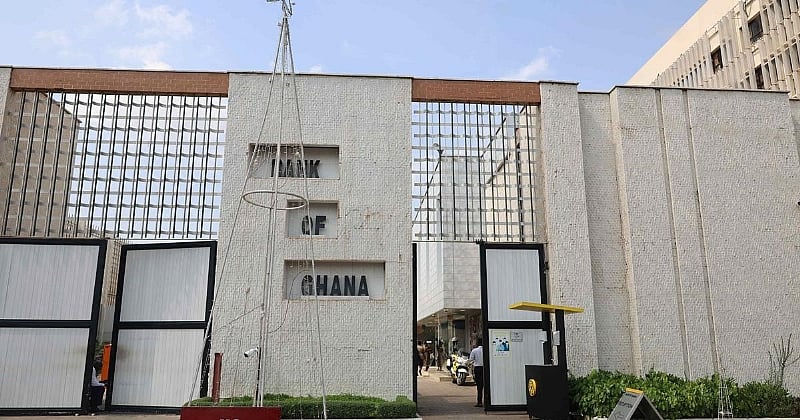The Bank of Ghana (BoG) has successfully implemented a significant open market operation (OMO), raising GH¢9.09 billion from financial institutions through the auction of 56-day bills. This strategic move aims to tighten liquidity within the Ghanaian financial system, a crucial step in the central bank’s ongoing efforts to combat inflationary pressures and stabilize the macroeconomic environment. The auction, which attracted substantial interest, saw bids accepted at interest rates ranging from 26.7518% to 26.8437% per annum, resulting in a weighted average interest rate of 27.9969%. This reflects the BoG’s commitment to utilizing short-term liquidity management tools to effectively manage inflation expectations and mitigate exchange rate volatility.
The substantial GH¢9.1 billion uptake of BoG bills signals a strong vote of confidence from the market in the central bank’s commitment to its monetary tightening stance, despite the prevailing high interest rates. This aggressive approach reinforces the BoG’s resolve to curb inflation and stabilize the cedi, the Ghanaian currency, which has been facing depreciation pressures. Unlike government Treasury bills issued by the Ministry of Finance, these BoG bills serve a distinct purpose: they are specifically designed to regulate the money supply and exert influence over short-term interest rates within the financial system. By issuing these bills and attracting substantial bids at relatively high yields, the BoG effectively absorbs excess liquidity from the market, a key mechanism in its strategy to control inflation.
The timing of this OMO is particularly significant given the complex economic challenges Ghana is currently navigating. The country is grappling with high inflation, a debt restructuring process, and currency depreciation, all of which contribute to a volatile economic landscape. The BoG’s proactive and decisive action through this OMO is considered a cornerstone of its broader strategy to maintain the recent progress made in achieving price stability, building upon previous measures such as base rate hikes and tightened monetary policies. This intervention underscores the BoG’s commitment to actively managing the money supply and influencing short-term interest rates to achieve its macroeconomic objectives.
This OMO intervention can be interpreted as a continuation of the BoG’s broader strategy to manage inflationary pressures and stabilize the Ghanaian economy. The high interest rates offered on the 56-day bills reflect the BoG’s determination to attract substantial liquidity from the market, effectively reducing the money supply and curbing inflationary pressures. This strategy aligns with the central bank’s mandate to maintain price stability and support sustainable economic growth. The success of the auction, demonstrated by the significant uptake of the bills, suggests market confidence in the BoG’s approach.
The current economic climate in Ghana, marked by high inflation, debt restructuring, and currency depreciation, necessitates proactive measures from the central bank. The BoG’s OMO, coupled with previous policy adjustments like base rate hikes, demonstrates a comprehensive approach to addressing these challenges. By actively managing liquidity and influencing short-term interest rates, the BoG aims to create a more stable macroeconomic environment conducive to economic recovery and growth. The high yields offered on the BoG bills incentivize financial institutions to participate in the auction, further reinforcing the effectiveness of this liquidity management tool.
In conclusion, the BoG’s successful raising of GH¢9.09 billion through the auction of 56-day bills represents a strategic and decisive move to tighten liquidity, curb inflation, and stabilize the Ghanaian economy. The significant market participation in the auction, despite high interest rates, underscores confidence in the central bank’s monetary policy direction. This OMO, combined with other policy measures, forms a comprehensive strategy to address the complex economic challenges facing Ghana, aiming to achieve price stability and support sustainable economic growth amid a backdrop of high inflation, debt restructuring, and currency depreciation. The BoG’s proactive approach signals a commitment to navigating these challenges and fostering a more stable and resilient economic environment.














